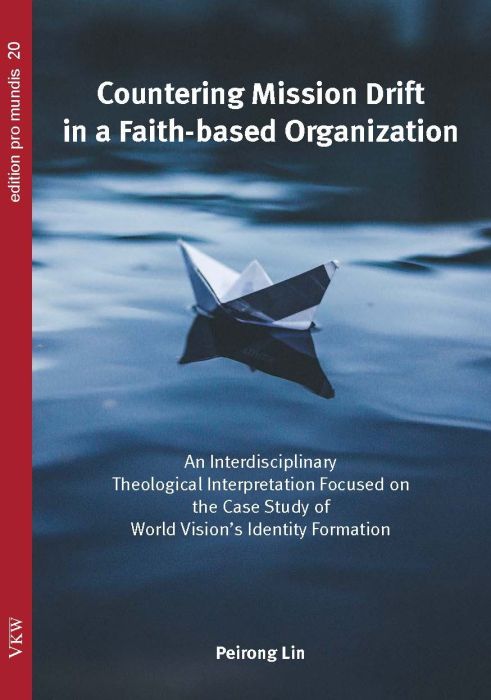Wir verwenden Cookies, um Ihre Erfahrung zu verbessern. Um die neuen Datenschutzrichtlinien zu erfüllen, müssen wir Sie um Ihre Zustimmung für Cookies fragen. Weitere Informationen
Countering Mission Drift in a Faith-based Organization
An Interdisciplinary Theological Interpretation Focused on the Case Study of World Vision’s Identity Formation
This book presents the case study of World Vision as a useful contribution in the discussion of mission drift, a common phenomenon facing faith-based organisations. Mission drift has been categorised as a drifting away from the organisation’s founding mission, purpose and identity. Practical theological interpretation is undertaken in this case study. There are four phases involved in this approach: design, collection, analysis and recommendation. …
32,00 €
Eventuell nicht lagernd - wir versuchen schnell zu besorgen
Alle Preise inkl. MwSt.
Artikelnummer:
540169000
EAN/ISBN:
9783862691692
Produktart:
Bücher
Einband:
gebunden
Maße:
14 x 21 cm
Umfang:
448 S.
Veröffentlichungsdatum:
27.07.2019
This book presents the case study of World Vision as a useful contribution in the discussion of mission drift, a common phenomenon facing faith-based organisations. Mission drift has been categorised as a drifting away from the organisation’s founding mission, purpose and identity. Practical theological interpretation is undertaken in this case study. There are four phases involved in this approach: design, collection, analysis and recommendation.
In the first phase, design, the key terms of the dissertation are explicated. One key model used is the identity formation model of organisations. In the second phase, collection, the actual collection of the empirical research is documented. Empirical research was done in two separate locations where World Vision worked in: Papua New Guinea and Nepal. In the third phase, analyzing, the findings of the empirical research are analysed firstly using the identity formation model, and more normatively, through the use of the normative practice model. In the final phase, recommendations are made in light of the analysis. These recommendations are also framed using the identity formation model with content and process recommendations given.
In the first phase, design, the key terms of the dissertation are explicated. One key model used is the identity formation model of organisations. In the second phase, collection, the actual collection of the empirical research is documented. Empirical research was done in two separate locations where World Vision worked in: Papua New Guinea and Nepal. In the third phase, analyzing, the findings of the empirical research are analysed firstly using the identity formation model, and more normatively, through the use of the normative practice model. In the final phase, recommendations are made in light of the analysis. These recommendations are also framed using the identity formation model with content and process recommendations given.

